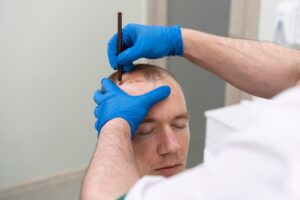Can Hair Restoration Fix Genetic Hair Loss?
What Is Genetic Hair Loss?
Genetic hair loss, also known as androgenetic alopecia, is the most common cause of hair thinning in both men and women. It’s usually inherited from your parents and can start as early as in your 20s or 30s. Men typically experience a receding hairline or balding on the crown, while women usually notice their hair thinning across the top of their head. Unlike other forms of hair loss, which may be triggered by things like stress or illness, genetic hair loss is a long-term condition that gets worse with time.
Can Hair Restoration Help?
Hair transplants have become a popular solution for people dealing with genetic hair loss. The good news is that they can really help those struggling with this kind of hair loss. The process involves taking healthy hair from a part of your scalp where hair is still growing (usually the back of your head) and moving it to the areas where hair is thinning or missing.
The best part is that the hair follicles taken for the transplant are resistant to hair loss, meaning they should keep growing in their new spot, even if the rest of your hair continues to thin over time. This makes hair transplants a great choice for people with genetic hair loss, as the results are usually permanent.


 Call Us: +91 7506808008
Call Us: +91 7506808008 Email: cosmeticclinique@gmail.com
Email: cosmeticclinique@gmail.com